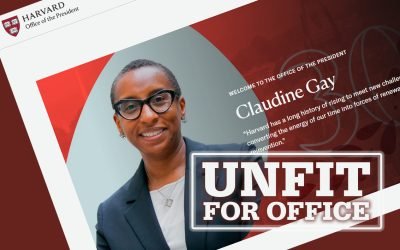A reader recently asked why an organization that defends property rights is interested in school choice. The reason is: school choice is a property rights issue.
The right to property means the freedom to produce, trade, and use material values as one deems best. For producers, this means the freedom to produce a product or service, such as education, and then offer that value to willing buyers. For consumers, this means the freedom to purchase the products and services of one’s choosing. Property rights protect our freedom of choice in the pursuit of values.
The government school system makes it difficult, if not impossible, for many parents to purchase the education services that they want for their children. Those parents are forced to provide financial support for government schools, and this often leaves no money available to purchase an alternative education service. They are locked into government schools, regardless of their child’s needs or interests. For those parents, the government school system has eliminated their freedom of choice.
School choice programs provide parents with the means to purchase alternative education services or provide home schooling. School choice programs enable parents to exercise their freedom of choice.
School choice is a step towards restoring freedom in the realm of education. However, it is not the ideal, not does it represent a consistent application of property rights. If property rights were consistently applied to education, government’s involvement, including coercive financing of schools, would be eliminated. Parents could then spend their money on the education services that they think best for their children. And other individuals would be free to support the schools of their choosing.
At the same time, property rights would remove the multiple regulations and controls that are imposed on private schools. Education innovators would be free to develop new curriculums and new teaching methods. Property rights would provide parents with more options.
The pursuit of any material value is a property rights issue. And that includes education.
The critics of school choice programs often point out that most parents are satisfied with their local government school. Most polls find that 70 percent or more of parents believe their child is receiving an adequate education. This means that 30 percent of parents aren’t satisfied with their child’s government school. Those parents want alternatives to government schools, and for many, school choice programs make that possible, i.e., those programs provide choice for those who want it.
The fact that a large majority of parents are satisfied with government schools does not justify denying choices for those who aren’t satisfied.
Parents have a wide range of reasons for wanting to move their children out of government schools. Most of those reasons pertain to the curriculum. Many parents object to the ideas and values taught in government schools. They want their children to attend a school more aligned with the parents’ values.
The wealthy have always had a choice when it comes to education. They can afford the tuition at a private school. But low- and moderate-income families do not have that luxury because they are supporting the government school system through taxes. Not only do these parents have no choice regarding their child’s education, they have no choice regarding their coerced support for government schools.
Many rural parents oppose school choice, arguing that they have few alternatives to government schools. Again, the fact that some have fewer alternatives is not justification for denying others the opportunity to have more options.
Where school choice programs exist, parents who are happy with government schools can leave their children enrolled in them. That is their choice. School choice takes nothing away from those parents. However, school choice does provide dissatisfied parents with more choices.


